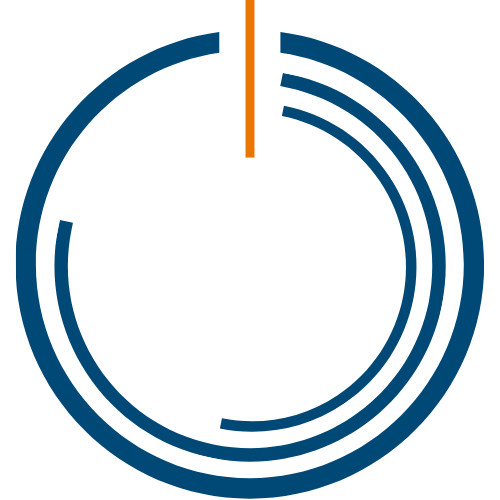4 min read
Are you ready to bid farewell to your daily coffee fix? If so, experts strongly advise against quitting caffeine cold turkey. Caffeine is a powerful central nervous system stimulant, and abrupt cessation can lead to a range of discomforting withdrawal symptoms, including the infamous caffeine withdrawal fatigue. To ease this transition, the key is to cut back on caffeine gradually.
Gradual Caffeine Reduction: A Smoother Path
Instead of making an abrupt shift away from caffeine, it's advisable to reduce your intake gradually. If you quit suddenly, you might find yourself grappling with tiredness and muscle aches that can take a toll on your well-being. By gradually tapering off caffeine over two to three weeks, you can make the transition smoother and reduce the intensity of withdrawal symptoms. Your energy levels are likely to bounce back within that time frame.
The Caffeine Withdrawal Timeline

Creating a caffeine withdrawal timeline is a strategic move if you're serious about kicking the caffeine habit successfully. According to the Cleveland Clinic, withdrawal symptoms typically start to kick in between 12 to 24 hours after your last caffeine dose and can persist for two to nine days. Abruptly eliminating caffeine from your diet may lead to feelings of fatigue, muscle discomfort, and even the dreaded caffeine withdrawal headache.
The more caffeine you consume regularly, the more pronounced your withdrawal symptoms are likely to be. To mitigate these effects, gradually reduce your caffeine intake over the course of a few weeks.
The Impact of Caffeine
Caffeine is naturally present in various plants, including tea shrubs, coffee plants, and cacao plants used for making chocolate. You can consume caffeine through various foods and beverages, such as coffee, tea, soda, and chocolate, with caffeine content ranging from 60 to 250 milligrams per serving, as per the Cleveland Clinic.
When you consume caffeine, it travels through your digestive system and into your bloodstream, where it stimulates your central nervous system, comprising your brain, nerves, and spinal cord. This stimulation provides a temporary energy boost, enhancing alertness, focus, and reducing fatigue. The effects generally become noticeable within 15 to 30 minutes and peak after about an hour, with caffeine lingering in your system for up to six hours, taking around 10 hours to be completely cleared from your bloodstream.
How Much is Safe?
For most adults, consuming up to 400 milligrams of caffeine daily is considered safe, equivalent to approximately four cups of coffee, ten cans of cola, or two energy drinks, according to the Mayo Clinic. Adolescents should consume less due to their increased sensitivity to caffeine's effects, and it's generally advisable not to combine caffeine with alcohol.
Excessive caffeine intake can lead to various adverse effects, including migraines, insomnia, irritability, upset stomach, rapid heartbeat, and tremors. It's essential to be aware that caffeine can also hide in medications and herbal products, such as guarana, yerba mate, and green tea extract, adding to your overall caffeine intake.
Reducing Caffeine Intake
If you've been a regular consumer of caffeinated beverages for an extended period, quitting may lead to feelings of deprivation. Some individuals may even become physiologically and psychologically addicted to caffeine. The Mayo Clinic offers some tips for transitioning to a caffeine-free lifestyle:
- Monitor your caffeine intake by reading labels on food and drink products.
- Gradually reduce your caffeine consumption, starting with your later daily beverages.
- Consider replacing caffeinated options with decaffeinated alternatives.
- Experiment with brewing your tea for a shorter duration or switching to caffeine-free herbal tea.
Life After Caffeine Withdrawal
If you've successfully reduced your caffeine intake over several weeks, you'll likely notice that your body becomes accustomed to lower caffeine levels, and caffeine withdrawal fatigue becomes a thing of the past.
Although caffeine has been widely associated with increased alertness and focus, studies have shown that individuals who have abstained from caffeine for over a week or those who typically avoid caffeine altogether report feeling more alert after consuming it. However, objective tests reveal no significant performance improvement due to caffeine consumption.
In fact, there is no evidence to suggest that caffeine genuinely boosts energy in the sleep-deprived. Quality sleep remains a superior choice for combating fatigue. If you're concerned about losing energy when giving up caffeine, you may find that caffeine's energy-boosting effects were not as significant as you once believed.
In summary, when it comes to quitting caffeine, a gradual reduction is the wise path to follow. Sudden cessation can lead to unwelcome withdrawal symptoms, but by steadily cutting back, you can navigate the transition more comfortably. With time, you'll adjust to a caffeine-free life, experiencing improved overall well-being without depending on caffeine's artificial energy boosts.

